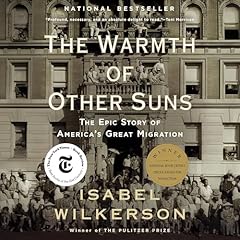
A Problem From Hell
America and the Age of Genocide
Failed to add items
Add to Cart failed.
Add to Wish List failed.
Remove from wishlist failed.
Adding to library failed
Follow podcast failed
Unfollow podcast failed
 Prime members: New to Audible?
Prime members: New to Audible?Get 2 free audiobooks during trial.
Buy for $30.76
-
Narrated by:
-
Joyce Bean
-
By:
-
Samantha Power
Pulitzer Prize, General Nonfiction, 2003
National Book Critics Circle, Nonfiction, 2003
In her award-winning interrogation of the last century of American history, Samantha Power - a former Balkan war correspondent and founding executive director of Harvard’s Carr Center for Human Rights Policy - asks the haunting question: Why do American leaders who vow “never again” repeatedly fail to stop genocide? Drawing upon exclusive interviews with Washington’s top policy makers, access to newly declassified documents, and her own reporting from the modern killing fields, Power provides the answer in A Problem from Hell, a groundbreaking work that tells the stories of the courageous Americans who risked their careers and lives in an effort to get the United States to act.
©2007 Samantha Power (P)2012 Brilliance Audio, Inc.Listeners also enjoyed...




















People who viewed this also viewed...








history lessons to learn not repeat
Something went wrong. Please try again in a few minutes.
The book mainly focuses on U.S. foreign policies (or lack of) about these genocides and how the politicians at the time acted. Naturally, politicians are reluctant to choose unpopular policies with unknown risks, especially when there are serious domestics problems. There are of course examples of failed foreign interventions. But, to me, the problem is that the people may not always be aware of what is going on in a remote places in the world (though this may be less of a problem now because of the Internet). Of course, people would demand better domestic economy and national security policies over foreign interventions. But at what cost? We as citizens need to be better educated about what goes on in other countries and demand any necessary intervention actions from politicians.
This was a difficult book to read emotionally. But this must have been a really difficult book to write. The book does amazing job of depicting facts and events as they were (well researched) with minimum emotional interpretations. I have tremendous respect for Samantha Power for this.
The problems that we turned away from
Something went wrong. Please try again in a few minutes.
The reality of circumstance
Something went wrong. Please try again in a few minutes.
Comprehensive
Something went wrong. Please try again in a few minutes.
Good book about a bad thing.
Something went wrong. Please try again in a few minutes.


